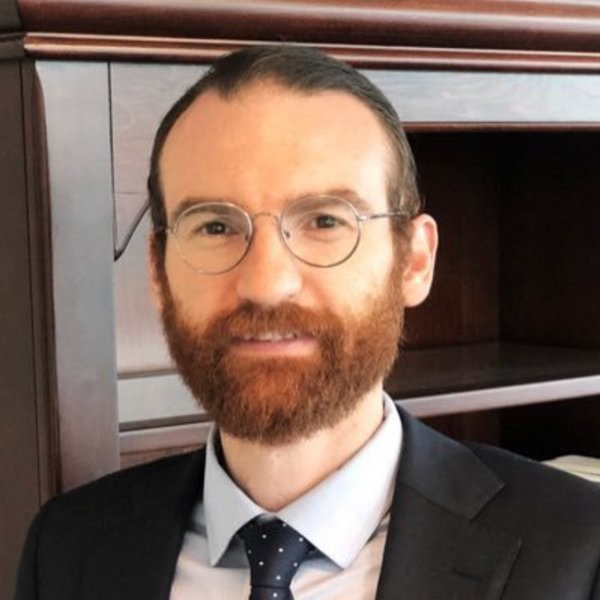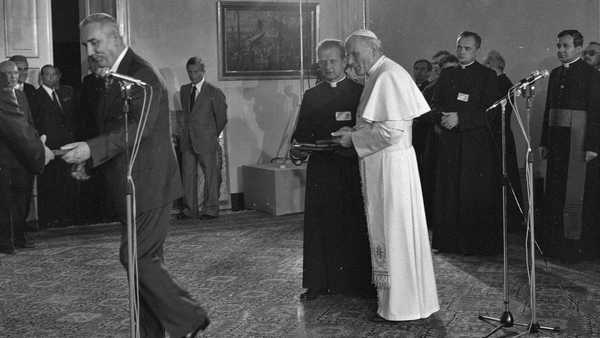With a new encyclical came a new opportunity for the faithful to claim that the pope had attempted to change Church teaching. Such claims, which are now commonplace, came from a variety of sources: both from those explicitly desiring and supporting the alleged change as well as from those wanting to grant the claim and read the document as uncharitably as possible in order to condemn its author. In the case of Fratelli tutti, focus was placed particularly on the Church’s teaching on the death penalty. In no uncertain terms, the document condemns the use of the death penalty: “There can be no stepping back from this position. Today we state clearly that ‘the death penalty is inadmissible’ and the Church is firmly committed to calling for its abolition worldwide.” Because this statement appeared in an encyclical, it seemed to many that the pope was somehow elevating this teaching to a new position of importance and in effect officially changing a formerly-held position.
These sorts of claims of changes in Church teaching are rightly concerning to many people, perhaps even for reasons they do not fully understand. In order to address this issue, it is best to begin with the basics of teaching authority, or what the Church calls the Teaching Office. The Teaching Office, sometimes referred to as the munus docendi, is the authority of pope and the bishops with the pope to teach authoritatively. The primary role of the Church’s Teaching Office is to protect the truth; that is, to ensure that the truth is “religiously guarded and faithfully expounded.” This is not a power to create or modify truth; instead, it is the power to identify or confirm something as true, like one would definitively determine the truth of an historical fact. As Pope John Paul II once put it in an address to the Congregation for the Doctrine of the Faith:
Its power and its authority are actually the power and authority of Christian truth, to which it bears witness. The Magisterium, whose authority is exercised in the name of Jesus Christ is an organ of service to the truth and is responsible for seeing that the truth does not cease to be faithfully handed on throughout human history.
For this reason, any time any person makes a claim that Church teaching has changed, it should be met with serious suspicion, as this power to teach definitively is tied directly to the Church’s claim to authority. The role of the Church’s Teaching Office is non-negotiable, and the Church’s legitimacy, in part, relies on it. Put another way, claims that a definitive teaching has been changed is, in effect, an implicit attack on the authority of the Church itself.
There are of course levels of Church teaching, with some being described as definitive or even infallible. But even when the Church teaches in a non-definitive way, one has every reason to presume the teaching is true. Pope John Paul II notes in that same address:
In the case of the Magisterium, authority is not exercised only when the charism of infallibility is involved; its exercise has a wider field, which is required by the appropriate defense of the revealed deposit . . . [it] does not entitle one to hold that the pronouncements and doctrinal decisions of the Magisterium call for irrevocable assent only when it states them in a solemn judgment or definitive act.
Therefore, when the pope and the bishops exercise their teaching authority, it can be presumed that they are doing so in line with the full magisterium of the Church. And when the pope and the bishops teach definitively, one can be certain that they are doing so in line with prior Church teaching. Despite this, and instead of viewing the magisterium as an unchanging set of truths that the faithful can rely upon and which the pope and bishops protect, for many the truth seems to have become a political object, a prudential position vaguely rooted in general claims, but which can be changed or updated to fit the needs of a particular circumstance. Pope John Paul II goes on to speak to this problem as well:
Today we must note a widespread misunderstanding of the meaning and role of the Church's Magisterium. This is at the root of the criticisms and protests regarding its pronouncements, as you have particularly pointed out with respect to the reactions in not a few theological and ecclesiastical circles to the most recent documents of the papal Magisterium: the Encyclicals Veritatis splendor, on the principles of moral doctrine and life, and Evangelium vitae, on the value and inviolability of human life; the Apostolic Letter Ordinatio sacerdotalis, on the impossibility of conferring priestly ordination on women; and the Letter of the Congregation for the Doctrine of the Faith on the reception of Eucharistic Communion by divorced and remarried faithful.
As I have maintained elsewhere, the problem with what might be called the change position is not merely that it is incorrect; it is that it undermines itself. If a teaching on truth can be changed from X to Y, then there is no reason that it could not be changed from Y back to X, turning the Teaching Office of the Catholic Church into something like an adversarial political process where sides lobby for their position to win out. This “widespread misunderstanding” appears to be present in many of those who advocate for a change position on Church teaching, and it is no doubt why there are such volatile responses when any statement on morals is made that is not appreciated by such a group, the statement seen as another missed opportunity to course-correct and change the hard teaching.
Therefore, if something appears to be a change in teaching, there are really only two possibilities.
- The alleged change is not actually a change, and the faithful need to work harder and more charitably to understand the depth of the teaching and how it aligns fully with prior teaching.
- It is some sort of modification of a non-definitive prior teaching. Note the use of non-definitive here.
A definitive teaching cannot change any more than truth itself can be changed, as a definitive teaching is merely a certain expression of some confirmed truth, and for the reasons noted above, a change in a definitive teaching would amount to undermining the authority of the Church itself.
In the case of the death penalty, the second option is very difficult, if not impossible, to maintain. If one wants to make this claim, he or she would need to do substantial work to establish how a position with thousands of years of historical precedent in the Church, one that appears in scripture and one with official papal and episcopal recognition, was a kind of lower-level of teaching, one that could be modified at all. An additional, specific papal pronouncement to this effect, that the teaching is actually a change or a correction of a non-definitive teaching, would also likely be required for this position to hold any weight.
So what we are left with here is likely the first option: that the pope is not attempting to change any non-definitive teaching, but instead intending to teach in line with the magisterium, but in a way that more fully explores the nuances and difficulties of the teaching in light of the Church’s understanding of mercy, love, and the Gospel message. Therefore, it is important then to turn to what was specifically written by Pope Francis in the document.
I maintain that Pope Francis moves beyond the bare analysis of whether capital punishment is, in principle, permissible as a matter of moral fact to whether it is adequate in recognizing the fullness of Christ’s love. The Holy Father references two points that carry throughout the passage:
- “the death penalty is inadequate from a moral standpoint”
- “no longer necessary from that of penal justice.”
The latter was discussed in significant detail by Pope John Paul II and Pope Benedict XVI, but Pope Francis’s work on the former is especially important here.
Pope Francis chooses not to directly engage a long-established tradition of teaching that recognizes the basic moral legitimacy of capital punishment; he instead appeals to another entirely legitimate tradition within the Church that transcends blunt moral truth, to love beyond the minimal, especially when it comes to something that cuts off the other. He writes:
From the earliest centuries of the Church, some were clearly opposed to capital punishment. Lactantius, for example, held that “there ought to be no exception at all; that it is always unlawful to put a man to death.” Pope Nicholas I urged that efforts be made “to free from the punishment of death not only each of the innocent, but all the guilty as well.” During the trial of the murderers of two priests, Saint Augustine asked the judge not to take the life of the assassins with this argument: “We do not object to your depriving these wicked men of the freedom to commit further crimes. Our desire is rather that justice be satisfied without the taking of their lives or the maiming of their bodies in any part . . . Do not let the atrocity of their sins feed a desire for vengeance, but desire instead to heal the wounds which those deeds have inflicted on their souls.”
This is certainly not an attempt to ignore any underlying teaching; in fact, it could be argued that the underlying teaching is presumed. It is instead done to show that both traditions have carried throughout the Church’s history, so as to articulate how both truths, properly understood, can sit side by side in a fully coherent and Catholic way. For Pope Francis, opposing the death penalty is to love despite and beyond any underlying moral claim, which by itself would be inadequate in expressing Christ’s unending outpouring of mercy and forgiveness that we are bound to emulate. The Holy Father recognizes the coherence of both traditions in this way:
For us, this prophecy took flesh in Christ Jesus who, seeing a disciple tempted to violence, said firmly: “Put your sword back into its place; for all who take the sword will perish by the sword” (Mt 26:52). These words echoed the ancient warning: “I will require a reckoning for human life. Whoever sheds the blood of a man, by man shall his blood be shed” (Gen 9:5-6). Jesus’ reaction, which sprang from his heart, bridges the gap of the centuries and reaches the present as an enduring appeal.
Note that Pope Francis speaks to a bridging of the apparent gap, a connection of the teachings into something coherent and full.
Much of Pope Francis’s teaching on this topic is reminiscent of a particularly unsettling portion of The Brothers Karamazov by Fyodor Dostoevsky, a favorite author of the pope’s, wherein the character Ivan is relaying stories of particular cruelties that he had come across:
I have a charming pamphlet, translated from the French, describing how, quite recently, five years ago, a murderer, Richard, was executed—a young man, I believe, of three and twenty, who repented and was converted to the Christian faith at the very scaffold. This Richard was an illegitimate child who was given as a child of six by his parents to some shepherds on the Swiss mountains. They brought him up to work for them. He grew up like a little wild beast among them. The shepherds taught him nothing, and scarcely fed or clothed him, but sent him out at seven to herd the flock in cold and wet, and no one hesitated or scrupled to treat him so. Quite the contrary, they thought they had every right, for Richard had been given to them as a chattel, and they did not even see the necessity of feeding him. Richard himself describes how in those years, like the Prodigal Son in the Gospel, he longed to eat of the mash given to the pigs, which were fattened for sale. But they wouldn't even give him that, and beat him when he stole from the pigs. And that was how he spent all his childhood and his youth, till he grew up and was strong enough to go away and be a thief. The savage began to earn his living as a day laborer in Geneva. He drank what he earned, he lived like a brute, and finished by killing and robbing an old man. He was caught, tried, and condemned to death. They are not sentimentalists there.
The novel continues:
And in prison he was immediately surrounded by pastors, members of Christian brotherhoods, philanthropic ladies, and the like. They taught him to read and write in prison, and expounded the Gospel to him. They exhorted him, worked upon him, drummed at him incessantly, till at last he solemnly confessed his crime. He was converted. He wrote to the court himself that he was a monster, but that in the end God had vouchsafed him light and shown grace. All Geneva was in excitement about him—all philanthropic and religious Geneva. All the aristocratic and well-bred society of the town rushed to the prison, kissed Richard and embraced him; “You are our brother, you have found grace.” And Richard does nothing but weep with emotion, “Yes, I've found grace! All my youth and childhood I was glad of pigs' food, but now even I have found grace. I am dying in the Lord.” “Yes, Richard, die in the Lord; you have shed blood and must die. Though it's not your fault that you knew not the Lord, when you coveted the pigs' food and were beaten for stealing it (which was very wrong of you, for stealing is forbidden); but you've shed blood and you must die.” And on the last day, Richard, perfectly limp, did nothing but cry and repeat every minute: “This is my happiest day. I am going to the Lord.” “Yes,” cry the pastors and the judges and philanthropic ladies. “This is the happiest day of your life, for you are going to the Lord!” They all walk or drive to the scaffold in procession behind the prison van. At the scaffold they call to Richard: “Die, brother, die in the Lord, for even thou hast found grace!” And so, covered with his brothers' kisses, Richard is dragged on to the scaffold, and led to the guillotine. And they chopped off his head in brotherly fashion, because he had found grace (emphasis mine).
As Christians, we rightly recoil at tales like this, and no doubt the Church throughout the ages has recoiled with us. What it seems Pope Francis wants the faithful to consider is why we might find such accounts, and even the death penalty itself, contrary to the truth of the Gospel message. This is a difficult process, especially when one has a full view of the Church’s magisterium, but it is one we are obliged to undertake. Pope John Paul II identifies our failures here with a loss of respect for proper authority:
It therefore seems urgently necessary to recover the authentic concept of authority, not only from the formal juridical standpoint, but more profoundly, as a means of guaranteeing, safeguarding and guiding the Christian community in fidelity to and continuity with Tradition, to make it possible for believers to be in contact with the preaching of the Apostles and with the source of the Christian reality itself.
But in all likelihood the issue here goes beyond a lack of respect for authority to a lack of charity. We lack charity for our brethren when we fail to fully delve into a teaching and instead advocate or rally for positions that appeal to our own particular views. And we lack charity for the Church when we assume or claim that the pope is ignoring, neglecting or, worse, attempting to change the truth expounded by the magisterium.


